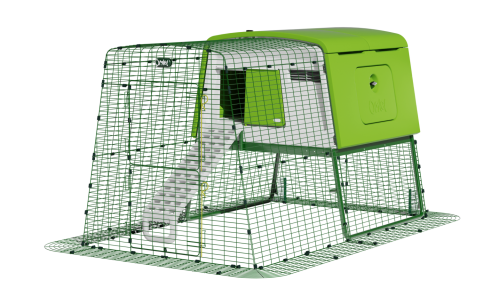Lice are a fairly common parasite that chickens can suffer from. The most common type of lice that chickens suffer from is Menopon gallinae. Lice will live on the chicken's skin underneath the feathers. The entire life cycle happens on the chicken so it is much easier to treat lice compared to worms. In small numbers lice don’t cause much irritation to your chickens and your chickens will try to manage their lice by having dust baths which will suffocate lice. However if your chickens have large numbers of lice living on them then they will need a bit of extra help from you.

A happy hen scrapping around for bugs after having just been let out
Signs And Symptoms
- A drop in egg production
- Broken feathers, feather loss, overpreening
- Red or sore skin around the vent area
- Scratching
- Lice crawling around the shaft of the feathers.
- Nits - Clumps of eggs stuck to the bottom of the shaft of the feather. Most commonly around the vent area. This will be a whitish grey, and are very hard and tricky to remove.
Treatment
Lice are easy to treat and your chicken should be lice free in a relatively short amount of time from when you start treatment; usually roughly 3 weeks as the life cycle of the lice is 3 weeks. As a preventative method it is a good idea to sprinkle Diatom powder in your chickens dustbaths (or over the area they usually use for dustbaths) as this will keep the lice from being able to take hold. If there are lots of lice then you can use a lice powder to powder your chickens. If you dust your chickens with a powder all over working it into their feathers and onto the skin 3-4 times a week for 3 weeks. You will need to do this for 3 weeks as any eggs left will hatch and you will need to kill off those lice until your chicken is lice free. In the mornings you can also dust their chicken coop with the powder although be careful to not make it too dusty as dust can cause respiratory problems.






Comments
There are no comments just yet